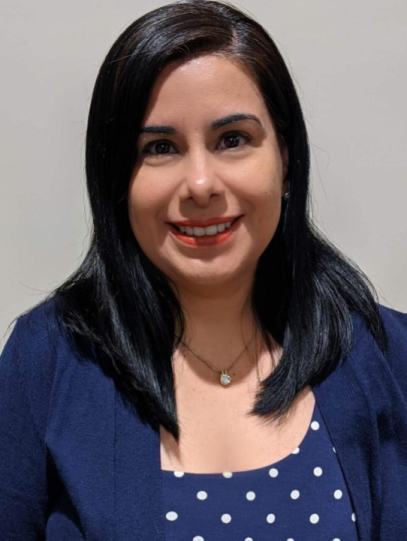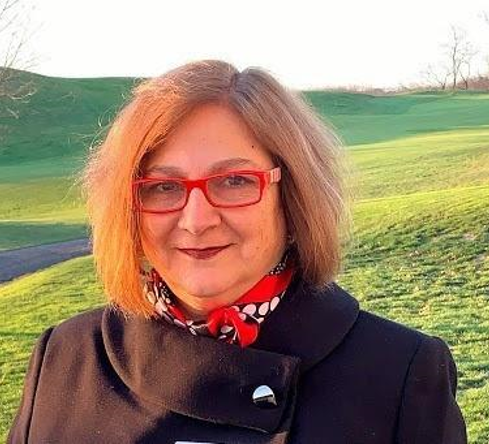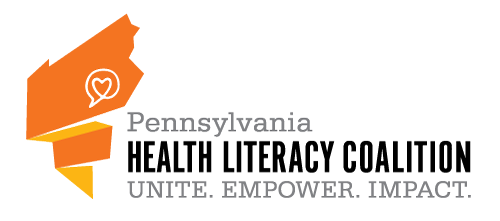Medical interpreters facilitate communication between patients from communities who speak languages other than English and their health care providers. Because of the growing number of patients who speak languages other than English in the U.S., the need for medical interpreters has increased significantly in the last decade. Medical interpreters are responsible for providing face-to-face interpretation between patients and providers, but due to the COVID-19 pandemic, many interpreters have had to perform their work over the telephone or using video technology.
Global Wordsmiths is a Pittsburgh-based social enterprise participating in our Immigrant Health Literacy Initiative (IHLI). The IHLI collaborative aims to address the health and health communication needs of immigrant and refugee communities in Pennsylvania through collaboration between community-based organizations and health systems that provide key health services to immigrant and refugee communities. Global Wordsmiths’ services include language translation, localization and interpretation services as well as language access consulting and training for organizations such as hospitals and healthcare systems, school districts, the nonprofit sector and municipal governments. Their mission is to create and advance a culture of language accessibility. This directly enables equitable access to services for English-learning immigrants and refugees who need these vital services to integrate and thrive. This also entails helping clients expand their service capacity, remain legally compliant, and build sustainable accessibility policies.
We’d like to recognize Diana Cardenas and Veronica Lasovsky who serve as medical interpreters with Global Wordsmiths. Diana has been providing Spanish interpretation services for a year and a half through Global Wordsmiths. Veronica has been providing English and Russian interpretation for 15+ years.

Global Wordsmiths

Global Wordsmiths
What is your role as a medical interpreter?
Diana: My role includes a lot: going to schools, doing appointments virtually, in-person appointments, working with adults and children, etc. I never stop learning new things, which is something I love.
Veronica: My role as a medical interpreter is to fully and effectively convey communication between a medical provider and a person with limited English proficiency from English to Russian and back accurately and completely, taking into account cultural differences and adhering to ethical norms.
How do you think, in general, providing medical interpretation advances health literacy?
Veronica: Medical interpretation enables individuals with limited English proficiency to find, understand, and use health-related information, make informed decisions, and receive necessary services.
How does your work benefit the people to whom you provide medical interpretation?
Veronica: My interpretation ensures smooth and effective communication between medical providers and patients making sure they understand each other and facilitating access to medical information and services for limited-English-proficient speakers equal to that of the native speakers.
What is an obstacle to medical interpretation you commonly face?
Diana: An obstacle medical interpreters face is that there are not enough interpreters to cover rural areas of the state and West Virginia.
Veronica: Lack of understanding of the interpreter’s role. Using relatives instead of professional medical interpreters. Interrupting the interpreter or several people speaking at the same time while the interpreter is interpreting. Attempts by both a provider and a patient to have a side conversation with an interpreter. Lack of understanding of cultural nuances by providers that may affect effectiveness of communication in general.
Name an accomplishment related to your medical interpretation work that you are particularly proud of.
Diana: I went to an appointment with a patient who found out that she was pregnant during the appointment. I was able to share the great news with the patient because they were unsure of what the doctor was telling her. Patients are happy and more comfortable when I am with them because I am someone that understands and can communicate what is going on during the appointments.
Veronica: As I was interpreting for an elderly patient with some memory loss being evaluated by a psychiatrist, I quickly realized that my words sounded muffled to her because of her hearing loss and my wearing a mask, so she did not hear clearly what I was saying, even though I spoke up. For this reason, her responses, when interpreted to English, sounded irrelevant and random. I quickly realized the patient responded to the words that rhyme with the ones actually uttered, so her responses did have some logic behind them. However, if I just interpreted her words from Russian to English, the psychiatrist would not be able to notice that logic and thus would not get the correct assessment of the patient’s cognitive skills, since corresponding English words do not rhyme. So, believing that this may be important for the doctor to know… to understand her train of thought, I briefly explained my observations to the psychiatrist – making sure the doctor understood it was the interpreter’s thoughts and not the patient’s words. The psychiatrist was very thankful and I felt like I performed my job well.
It still fascinates me that as an interpreter I am able to “build bridges” between people. They may be quite eloquent in their native language, yet without me, they are unable to understand each other. Medical interpreting helps people right here and right now, it’s almost tangible. It may save lives and definitely helps to maintain good health.
Veronica Lasovsky
What do you think will change about medical interpretation over the next five years?
Diana: Specific to Pittsburgh, more Spanish speakers are coming to the area. The future can bring more medical staff and doctors that speak Spanish.
What’s one thing you think is important for everyone to know about medical interpretation?
Diana: The patient has the right to receive medical interpretation. Healthcare organizations need visuals in different languages that tell the patients they can call an interpreter.
In her spare time, Diana loves spending time with her family and children. She also loves watching Grey’s Anatomy as a way to relax! Diana would like readers to remember that medical interpretation matters because the patient matters and needs to be understood. Veronica loves reading books, spending time with family, and traveling the world. She also considers photography her passion. Veronica would like readers to remember that medical interpretation matters because it may save lives.
If you’d like to learn more about Global Wordsmiths and the services they offer, contact their team at info@globalwordsmiths.com.
This Partner Profile was developed and written by Hillary Holes, CHES, Director Health Equity, Healthcare Council of Western Pennsylvania.
